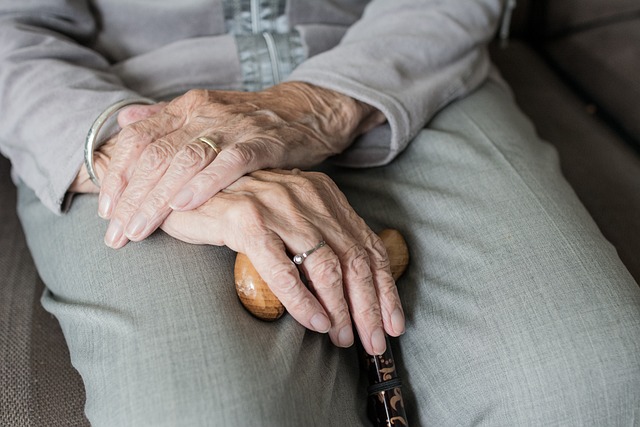Elderly Companion Services are vital for seniors with dementia, providing personalized care, companionship, and assistance to enhance quality of life and maintain independence. These services support caregivers by offering emotional support, social interaction, and cognitive stimulation, easing memory loss challenges through gentle guidance. Accessing local resources like home care, support groups, and memory care facilities ensures dignified care while easing the burden on loved ones' caregivers.
Dementia, a complex and progressive condition, poses significant challenges for elderly individuals, impacting their cognitive abilities and daily lives. In response, elderly companion services have emerged as vital support systems, offering companionship, assistance, and specialized care. This article explores the multifaceted role of these services in managing dementia, focusing on understanding the disease’s impact, the value of companions, and guiding caregivers through accessible resources for comprehensive, effective dementia care.
- Understanding Dementia and Its Impact on Elderly Individuals
- The Role of Elderly Companion Services in Supporting Those with Dementia
- Accessing and Navigating Available Resources for Effective Dementia Care
Understanding Dementia and Its Impact on Elderly Individuals

Dementia is a complex and progressive neurological disorder that significantly impacts elderly individuals, affecting their memory, thinking skills, and behavior. As the population ages, understanding this condition and its effects becomes increasingly vital. Elderly companion services play a crucial role in supporting those with dementia, ensuring they receive the care and companionship they need to maintain their quality of life.
The impact of dementia on the elderly is profound, leading to challenges in daily living, communication difficulties, and a gradual decline in independence. Companion services step in to provide vital assistance, offering personalized support tailored to each individual’s unique needs. These services not only help with basic tasks but also foster social interaction, boost mental stimulation, and offer emotional support, ultimately enhancing the overall well-being of those affected by this debilitating disease.
The Role of Elderly Companion Services in Supporting Those with Dementia

Elderly Companion Services play a vital role in supporting individuals with dementia, offering a unique and personalized approach to care. These services provide companionship and assistance tailored to the specific needs and preferences of those affected by dementia, ensuring their overall well-being. Companions can engage in meaningful activities, offer emotional support, and help with daily tasks, thereby reducing the burden on caregivers.
By providing a friendly presence, elderly companion services create a sense of comfort and security for people with dementia. They navigate the challenges of memory loss, offering gentle reminders and guidance while fostering social interaction and cognitive engagement. This support is crucial in maintaining the individual’s independence, enhancing their quality of life, and allowing them to remain in familiar surroundings for as long as possible.
Accessing and Navigating Available Resources for Effective Dementia Care

Accessing and navigating available resources for effective dementia care can be a daunting task, but with the right guidance, families and caregivers can unlock invaluable support. Many communities offer specialized services tailored to meet the unique needs of individuals with dementia, including Elderly Companion Services that provide companionship, assistance with daily tasks, and monitoring. These services not only alleviate the burden on caregivers but also enhance the quality of life for those living with dementia by offering a sense of security and social interaction.
Navigating these resources involves understanding local availability and eligibility criteria. Local healthcare providers, non-profit organizations, and government agencies often coordinate efforts to offer a comprehensive range of services. Caregivers are encouraged to reach out to these entities, discuss specific needs, and explore options such as home care, support groups, and memory care facilities. By taking advantage of available resources, families can ensure their loved ones receive the best possible care while maintaining their dignity and independence.
Dementia care is a complex landscape, but with access to the right resources, we can ensure better support for those affected. By understanding the condition and its impact on the elderly, and leveraging companion services tailored to their needs, we can navigate this challenging path more effectively. There are numerous available resources, from community programs to specialized care options, all designed to foster a higher quality of life for individuals with dementia and provide peace of mind for their caregivers. Embracing these services is a vital step towards creating a supportive tapestry for the elderly in their later years.
